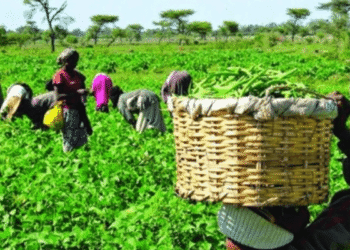
Mali, Burkina Faso, and Niger have imposed a 0.5% levy on all imported goods, further cementing their breakaway from ECOWAS (Economic Community of West African States) and intensifying trade tensions in West Africa.
Experts say the decision will weaken regional trade and hurt efforts to implement the African Continental Free Trade Agreement (AfCFTA), which has already struggled to gain traction.
A Setback for Regional Trade
With intra-African trade still at a low 14%, the new tariff is expected to slow trade formalization. While Nigeria recently increased documented trade with its neighbors, this move could reverse those gains.
1. The new tariff applies immediately and aims to fund the newly formed Alliance of Sahel States (AES), which was created after the three countries exited ECOWAS.
2. The AES, initially a security pact, is now evolving into an economic bloc, raising concerns over further trade barriers in the region.
How Will This Impact Nigeria?
Nigeria’s trade with ECOWAS countries remains small but growing:
-
In 2024, Nigeria’s imports from ECOWAS rose from ₦164 billion to ₦600 billion (1% of total imports).
-
Exports surged to ₦5.28 trillion, with 6.8% of that going to ECOWAS nations.
-
Niger and Benin rank 7th and 9th among Nigeria’s top export partners, with exports worth ₦32.55 billion and ₦25.91 billion, respectively.
Despite this growth, trade within ECOWAS is still below 10% of Nigeria’s total trade, making the impact limited but concerning.
What Experts Are Saying
1. Dr. Muda Yusuf (CEO, Centre for the Promotion of Private Enterprise)
-
Most trade in the region is informal and undocumented, so the levy’s impact on cross-border trade may be minimal.
-
Formal trade will be affected, but since ECOWAS trade is already weak, the effect on Nigeria’s economy will be limited.
-
Smuggled goods, such as cattle during festive periods, already bypass official tariffs, making the levy ineffective in controlling trade.
-
ECOWAS trade protocols were already weak, and this move is the final nail in the coffin for the trade agreement.
2. Dr. Madu Obiora (Director-General, African Centre for Supply Chain)
-
Since the three nations left ECOWAS, they are no longer bound by its trade treaties.
-
The 0.5% levy is relatively low, but further trade restrictions could cause major disruptions.
-
The move deepens the divide between English- and French-speaking ECOWAS nations.
-
Countries like Togo, a key trade route, may retaliate with counter-tariffs, further increasing trade costs.
The Bigger Picture: A New Trade War?
Experts warn that this emerging tariff battle could:
1. Increase trade costs across West Africa
2. Cause a spike in prices for goods
3. Hurt Nigeria’s export growth
4. Push the Sahel States to seek new trade partners outside Africa
With regional trade already weak, this move adds new obstacles instead of solving old ones. It also raises security concerns, as economic instability could fuel more tensions across the region.
As West Africa faces a potential trade war, how will Nigeria and ECOWAS respond?


![Viral House Party Video Sparks Conversation on Changing Social Norms Among Nigerian Mothers [Watch Video]](https://kumornews.com/wp-content/uploads/2026/02/Viral-House-Party-Video-Sparks-Conversation-on-Changing-Social-Norms-Among-Nigerian-Mothers-Watch-Video-1-360x180.jpg)















